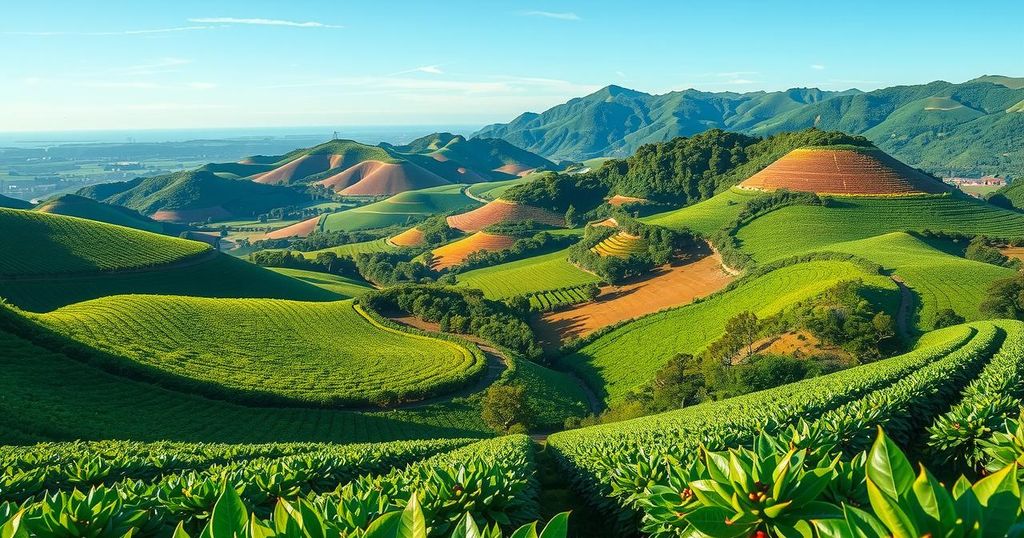The recent surge in coffee prices, averaging $7 per pound in the U.S., is largely due to severe drought and extreme temperatures in Brazil, the largest coffee producer. Farmers are experiencing significant harvest declines, with some losing their entire crops. The rising demand, particularly in China, exacerbates global supply issues, while concerns over coffee theft add further challenges to coffee production.
Brazil is primarily responsible for rising coffee prices, currently averaging $7 per pound in the U.S. The region is experiencing severe droughts and extreme temperatures, leading to significant harvest reductions. Farmers like Augusto Rodrigues Alves are struggling to meet buyer demands, stating, “I don’t have any coffee… zero,” highlighting the dire situation of coffee supply.
As demand for coffee continues to increase globally, particularly from China, the price of Arabica coffee, which dominates the market, has doubled over the past year. Consequently, coffee brands are increasing prices, making coffee a luxury, as city café patrons feel the impact with each cup.
In Alta Mogiana, some farmers’ harvests have decreased by half, with others facing total losses. These challenges, compounded by the threat of coffee theft, have driven farmers to consider buying coffee from other producers to fulfill orders. Tiago Donizete Rodrigues remarked, “I’m not going to be able to collect anything this year.”
The coffee industry in Brazil is further challenged by climate conditions unsuitable for the coffea arabica plant, which flourishes only in specific temperature ranges. In the face of average grows reaching 80 degrees and higher last year, climate change presents a looming threat, jeopardizing the viability of coffee farming in the region.
Research predicts that by the turn of the century, many regions in South America, particularly southeastern Brazil, will lose significant areas of suitable land for coffee cultivation. As a result, farmers are considering a shift to more resilient species such as coffea canephora, known for producing Robusta coffee, although challenges remain with flooding in other producing countries.
Despite rising prices, anxiety prevails among farmers regarding the future of their livelihoods. As Rodrigues Alves noted, “If we had any coffee to sell.” Criminal activities surrounding coffee have surged, with police reporting sophisticated theft rings targeting coffee, further alarming producers.
The once idyllic farming landscapes of Alta Mogiana are becoming increasingly fortified, as farmers invest in security measures to protect their dwindling crops. Fernanda Maciel stated they must now employ armed guards and surveillance technology to safeguard their livelihoods against thieves seeking to capitalize on their misfortunes.
In conclusion, the alarming rise in coffee prices is primarily attributed to Brazil’s ongoing struggles with climate change and severe drought, significantly impacting local harvests. As farmers face dwindling supplies and increased criminality surrounding coffee theft, the future of coffee production remains uncertain. With a shift towards alternative crop species being explored, the coffee industry may soon experience a profound transformation, challenging the dominance of Arabica coffee.
Original Source: www.bostonglobe.com






